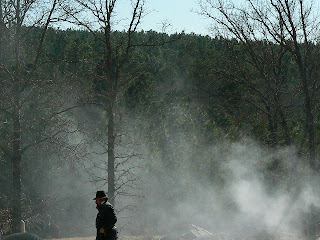Yesterday I felt dizzy. It was a day that started with some issues in the warehouse, an impromptu meeting with the business project leader, a Toastmaster meeting at noon, more issues in the warehouse, an hour meeting with the boss in the afternoon, read some interesting e-mails and, finally, phone calls to the warehouse staff to resolve the day’s issues. Somehow I still managed to go to the gym after work to exercise despite my spells of dizziness. It did not help that I slept late the previous night; about 1 am after attending a stock investing seminar online for 2 hours. I had always thought that I am good at multi-tasking but realized that age does catch up with you. The mind gets sluggish and confused when faced with constant demands from different directions. Sometimes writing a journal is what brings everything back into focus. It is probably the one significant act that keeps me sane.
The meeting yesterday was good and made me realize the coming workload ahead. With the success of the pilot, the work will ramp up to the other warehouses. The load is complimented with additional work in other projects I am involved in. Extra curricular tasks increase the burden to the mind and spirit: Toastmaster duties, classes on creative writing and investing, parental duties and other miscellaneous activities like reading books, surfing the Internet and watching movies. I am glad for the coming memorial weekend that would give me some rest time. There are just so many things that I want to do that I often sleep late. It’s watching movies, surfing the Internet or working with the new gadgets or software. Somehow writing a journal will pull my mind into a focus where I can concentrate on the needed tasks at work.
Without journaling, distraction occurs as the mind is unable to focus on work. Too many demands will make you dizzy as what happened to me yesterday. But a more sinister impact lie in the future if one persists in multi-tasking. According to recent studies, cognitive decline via diseases like Alzheimer’s will result. There is indeed a slowdown in mental capacity which is more attributable to age than misuse of the brain. I guess exercising, Tai Chi, meditation and journal writing are keeping the mind normal. But the pace of work, the availability of distractions and ‘addiction to know’ take their toll. It is not only the mind that’s affected as there’s a resulting impact in the body as well such as obesity and raggedness due to insomnia or lack of sleep. One’s metabolism is no longer youthful so the pounds are piling up especially in the abdomen.
Recently, I watched a documentary called ‘Ultra-Marathon Man’. It gave me an idea to start jogging again. This will improve my metabolism, keep my mind sharp and keep me healthy enough to succeed in the new demanding environment. In the past year, I go to the gym 3 times a week for about 45 minutes to run the treadmill, swim and do the cross trainer. I also use the sauna and steam bath to have a healthy sweat and remove toxic waste from my body. I think I can ramp up my exercise by doing a morning jog in the days when I don’t go to the gym. I think it’s the only way to remain fit and successful in an environment of abundant food and distraction. With my temperament, where I indulge in good food and drink, living an austere life will not work. But one still has to focus and avoid multi-tasking so prioritization and meditation via Tai Chi and journal writing still need to continue.
During the haze of work yesterday, I googled the writers Jonathan Franzen, David Foster Wallace and Cormac McCarthy. Both Franzen and Wallace are highly intelligent and well educated – attending many universities in their youth. Their works are brilliant intellectual exercises. Their analysis of the modern writer’s plight against the onslaught of television and technology is a good guide for would be authors. On the other hand, McCarthy is not an intellectual like Franzen or Wallace. He did not complete a college degree or spent a lot of time in a university. He strove to just be a writer - churning out works until he built a significant body of literature. His work has an immediacy and authenticity that one does not experience in Franzen or Wallace. Reading McCarthy is like being in the presence of a great writer like reading Hemingway. His preference for short declarative sentences is similar to Hemingway.
Don DeLillo is another writer who writes with short declarative sentences. His scope, ideas and tone seems like ‘high art’ when compared to other writers. Michael Chabon is another entertaining author who creates well structured, imaginative and entertaining novels – similar to the intellectual virtuosity of Franzen and Wallace. Thomas Pynchon on the other hand is a blend of McCarthy and Franzen. An intellectual but with the earthiness of McCarthy. His work is plugged into the same authenticity that McCarthy draws from. The atmosphere of his novels captures the milieu of the locale better than most writers. His themes are large and tackles the relevant questions similar to McCarthy who famously disdains writers who don’t tackle the grand themes of life and death - writers like Marcel Proust and Henry James. It’s a wonder to read current American writers as I seemed to have stopped at Hemingway preferring instead Asian, European and South American writers. There is life after Hemingway after all.



























